By default, Configuration Manager sets up each tenant to run a scheduled nightly Sync.
No manual intervention is needed. It will automatically start to ensure that at least once a day, Configuration Manager has an updated backup and detects changes in the tenant each night.
The scheduled Sync is important because:
- It ensures monitoring for drift from your baseline.
- It monitors for any changes in your tenant that you didn't want or may want to roll back.
You'll receive an email from Configuration Manager with a summary of the detected changes, keeping you informed of what's happening within your tenant.
Change the scheduled Sync settings
You can adjust the settings to control when the sync runs, or choose to disable the schedule entirely and run the sync manually instead.. You can change the Sync schedule for an individual tenant or for multiple tenants at once.
Please, note that the self-hosted version of Configuration Manager allows for a more granular scheduling than Configuration Manager SaaS. See the below paragraph (Differences in Sync frequencies for self-hosted vs SaaS Configuration Manager) for further information.
Individual tenants
Click on the gear icon on the right of the tenant row.
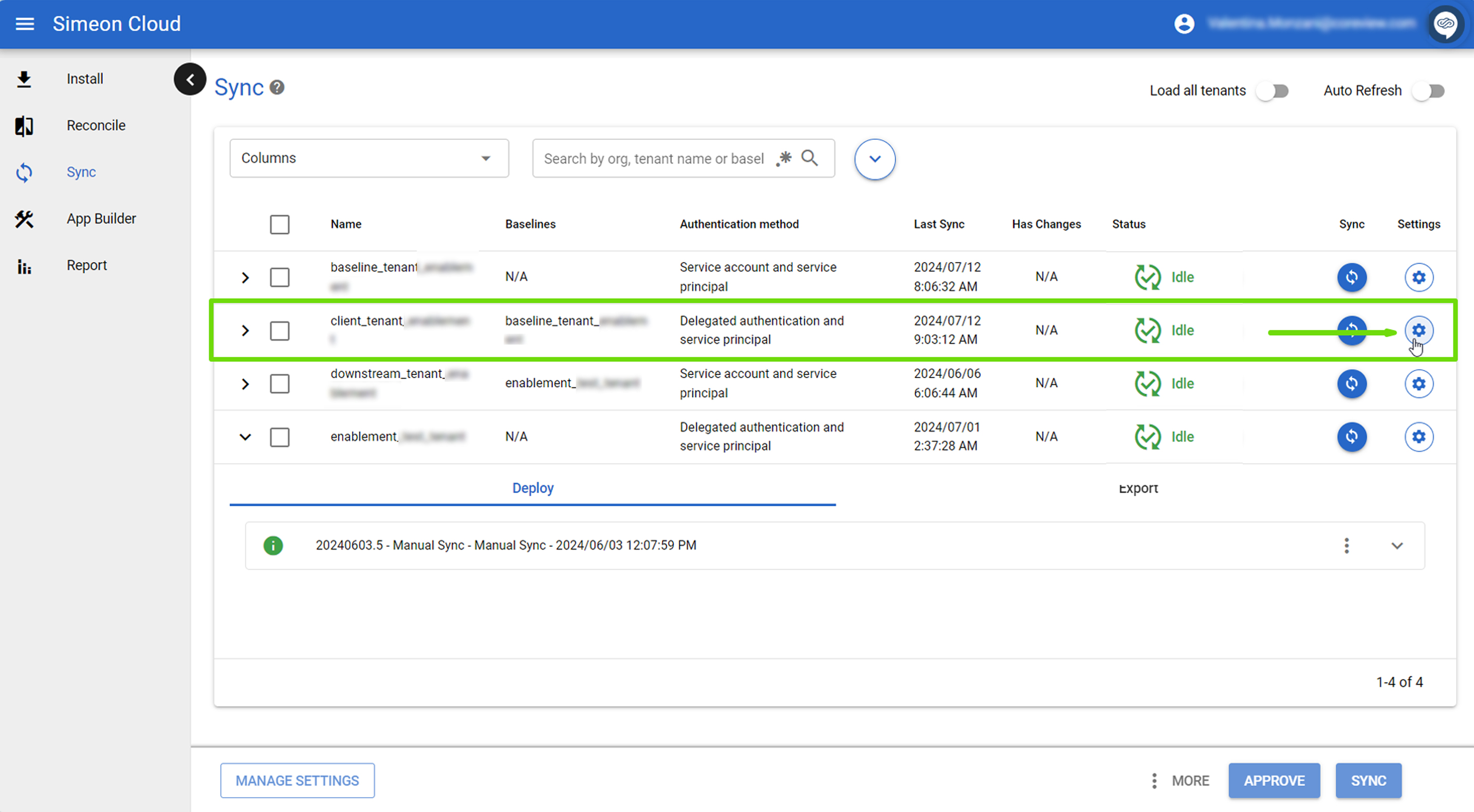
In the pop-up that appears, select “Sync schedule”.
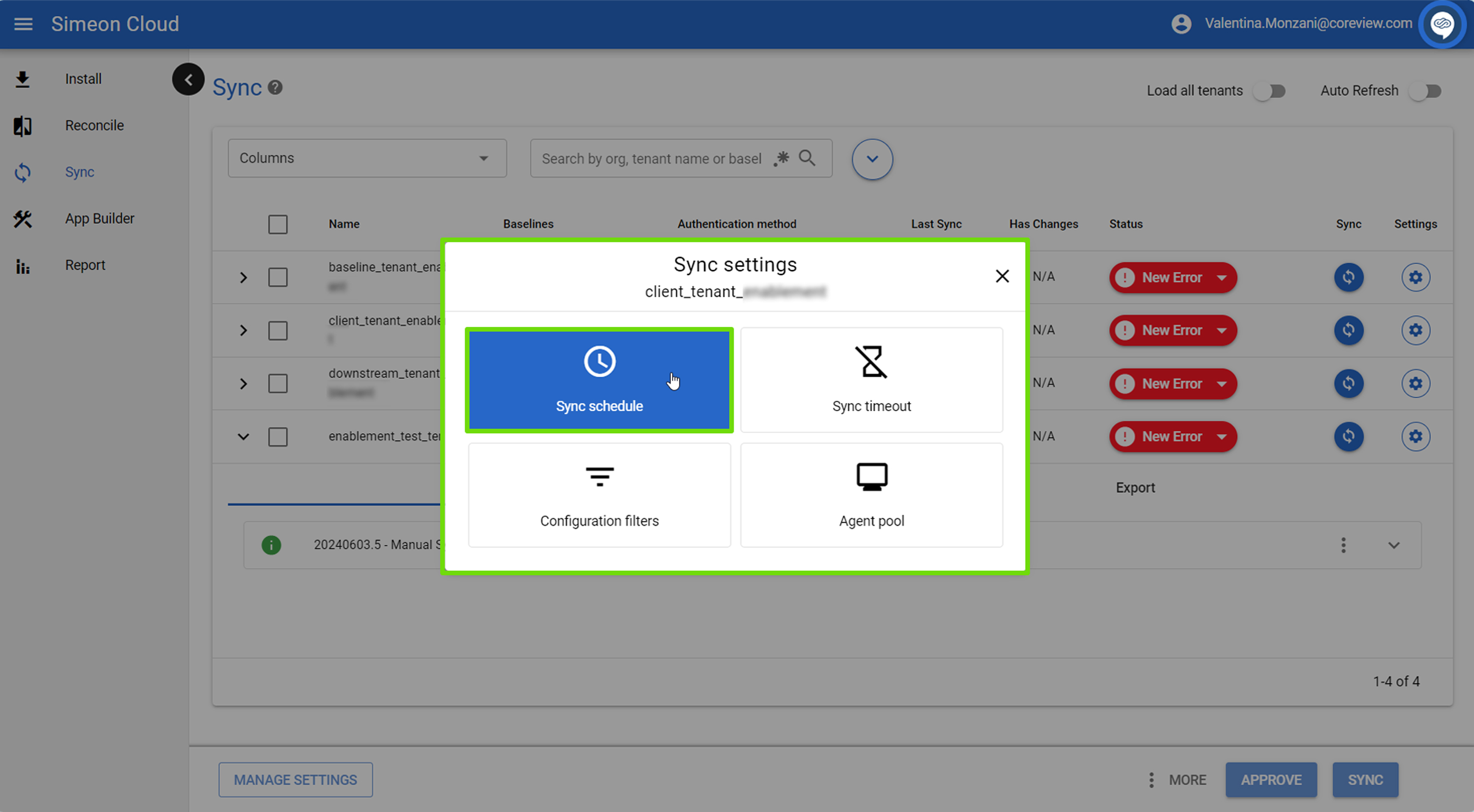
You can enable/disable the scheduled Sync with the toggle.
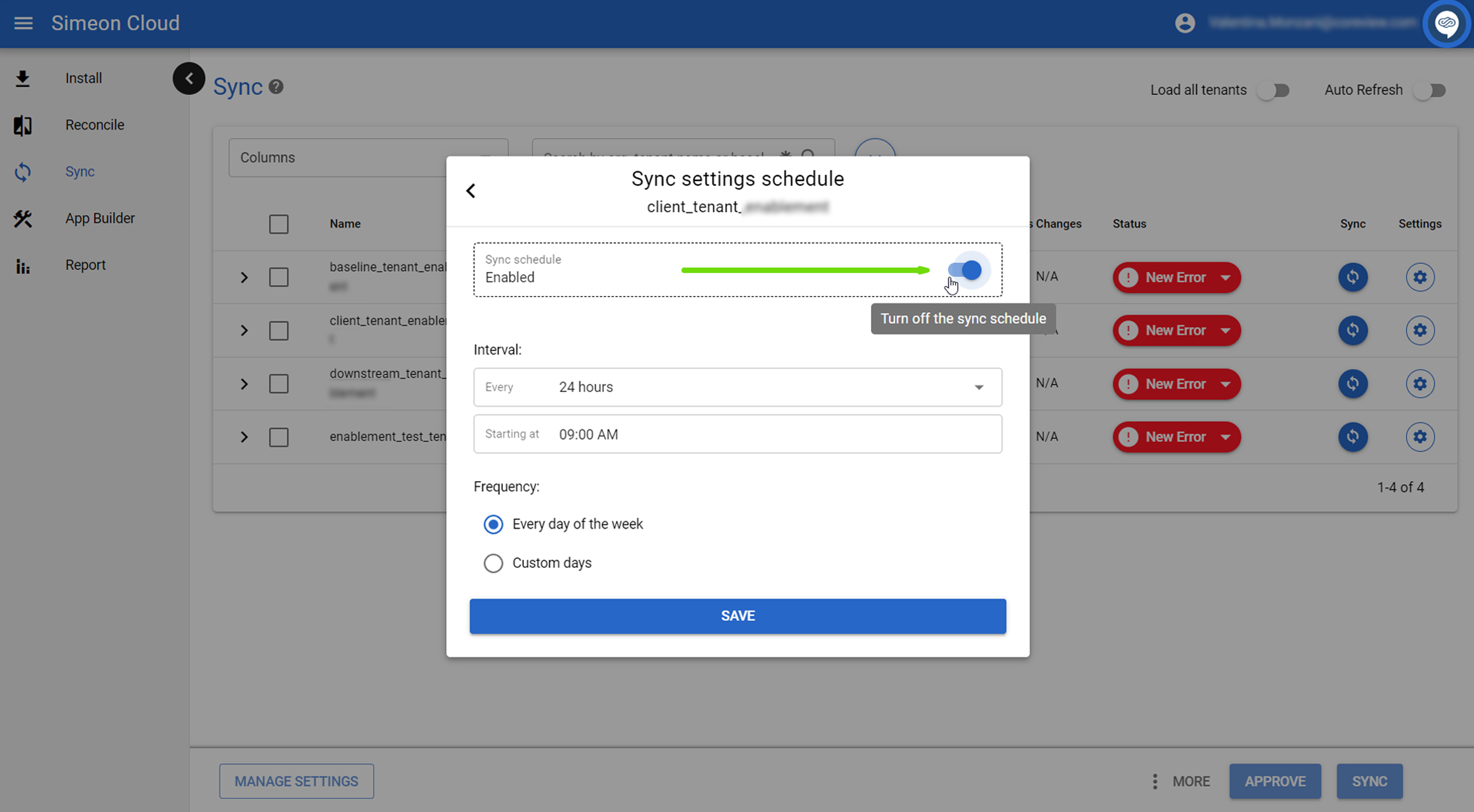
After enabling, you can set when you want the sync to run using the form.
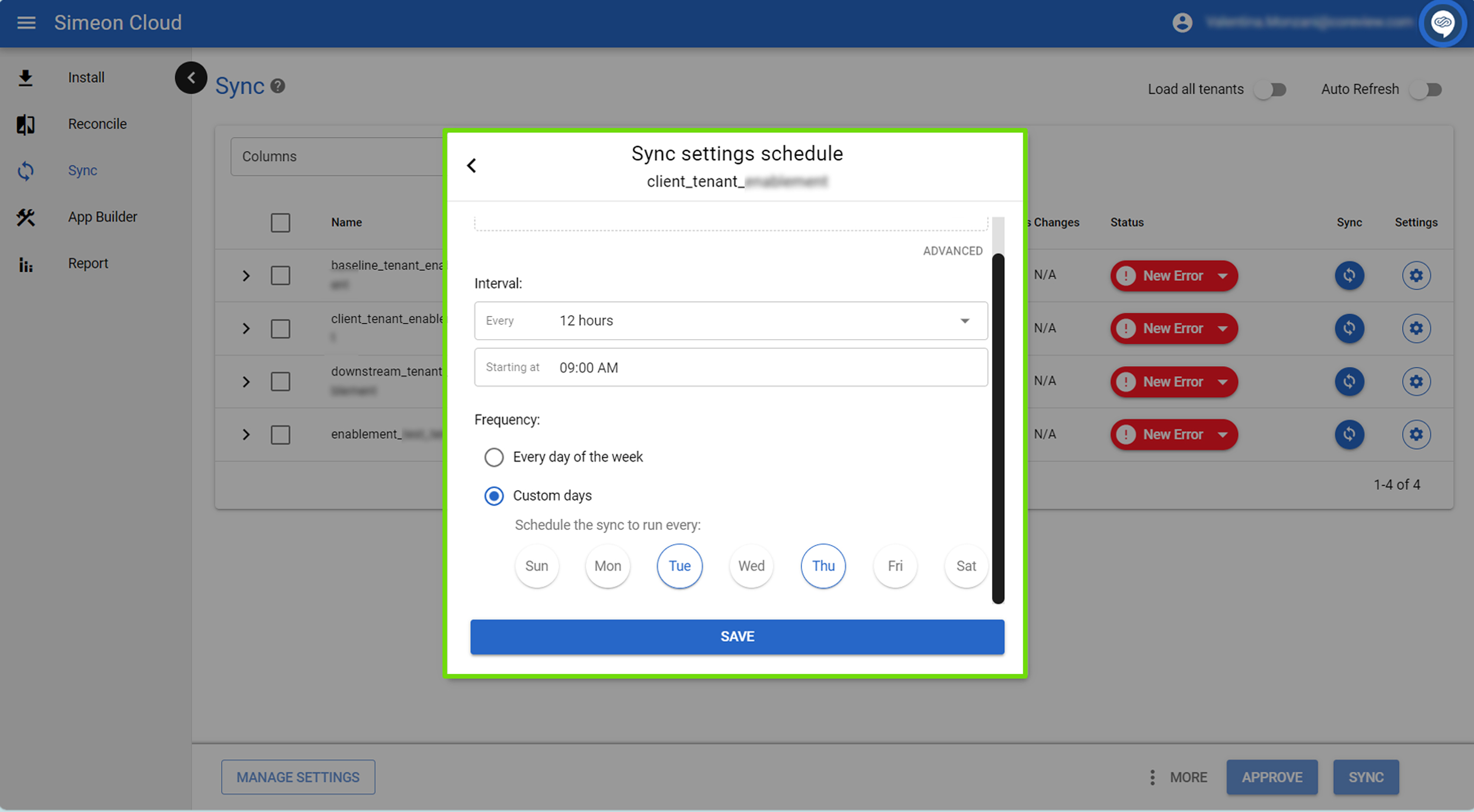
When done, click “Save”.
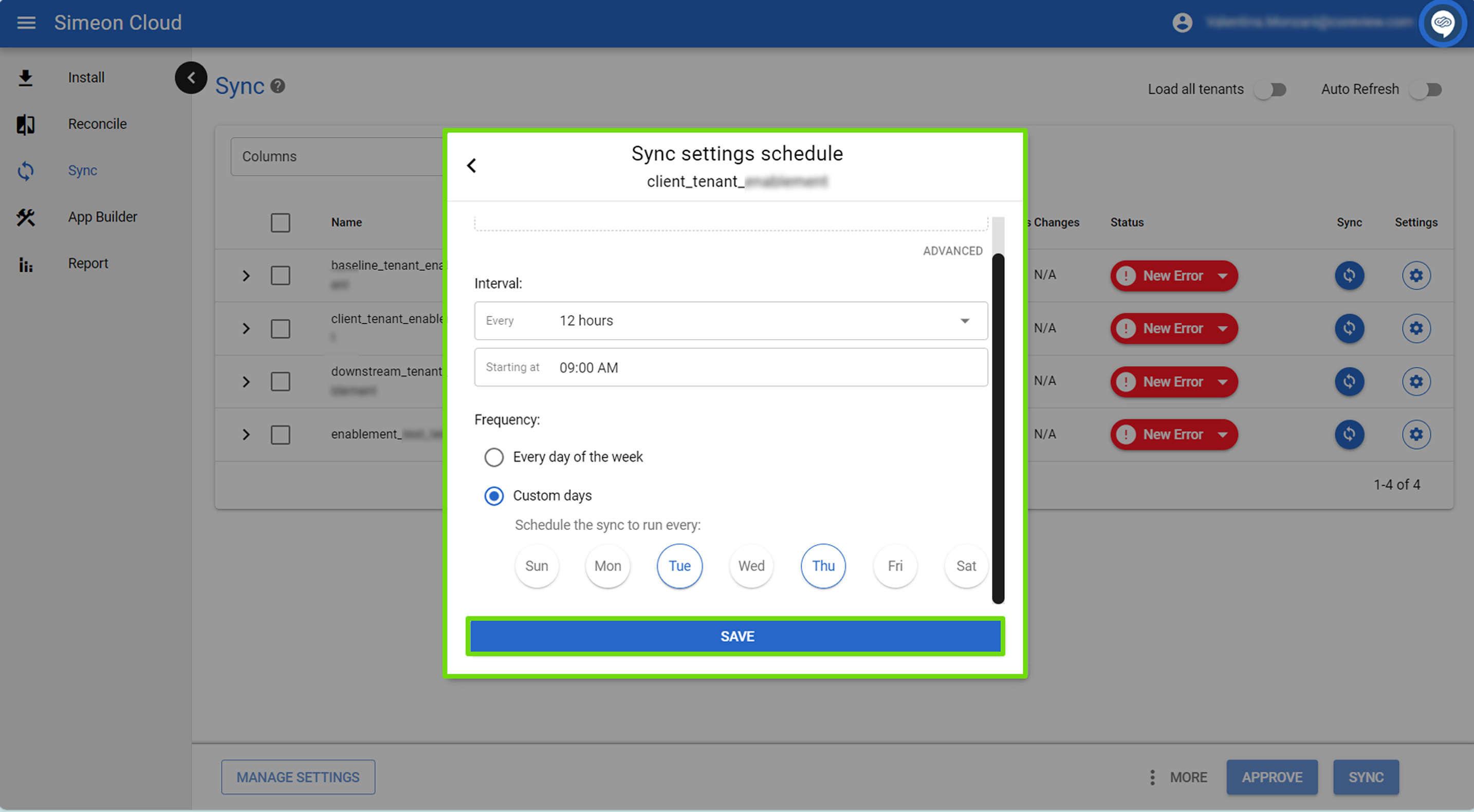
Multiple tenants
You can also change the Sync timeout for multiple tenants at once.
To do so, select the desired tenants by checking the related checkboxes and click “Manage settings” at the bottom left of the page:
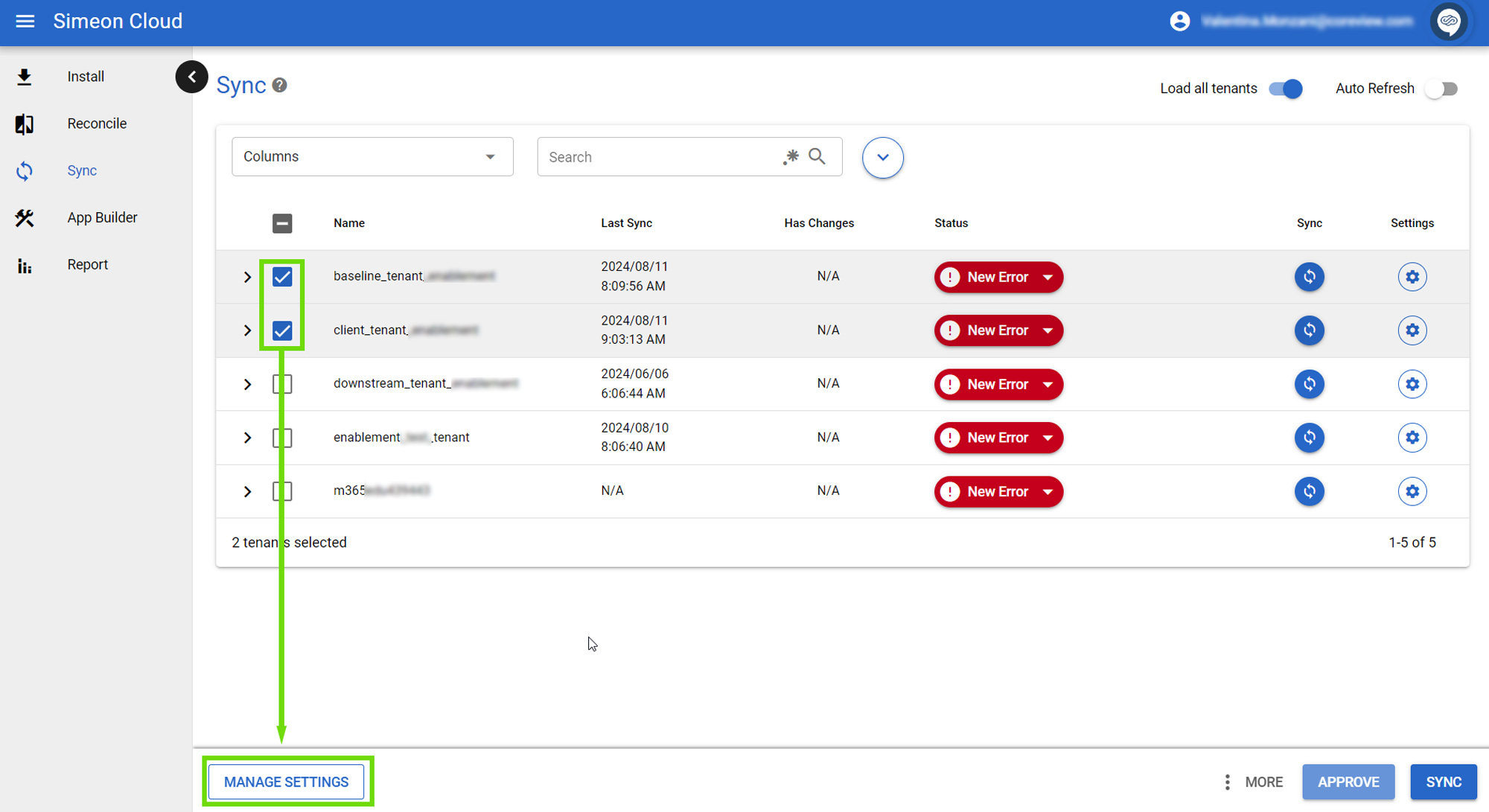
Next, select “Sync schedule” from the available options:
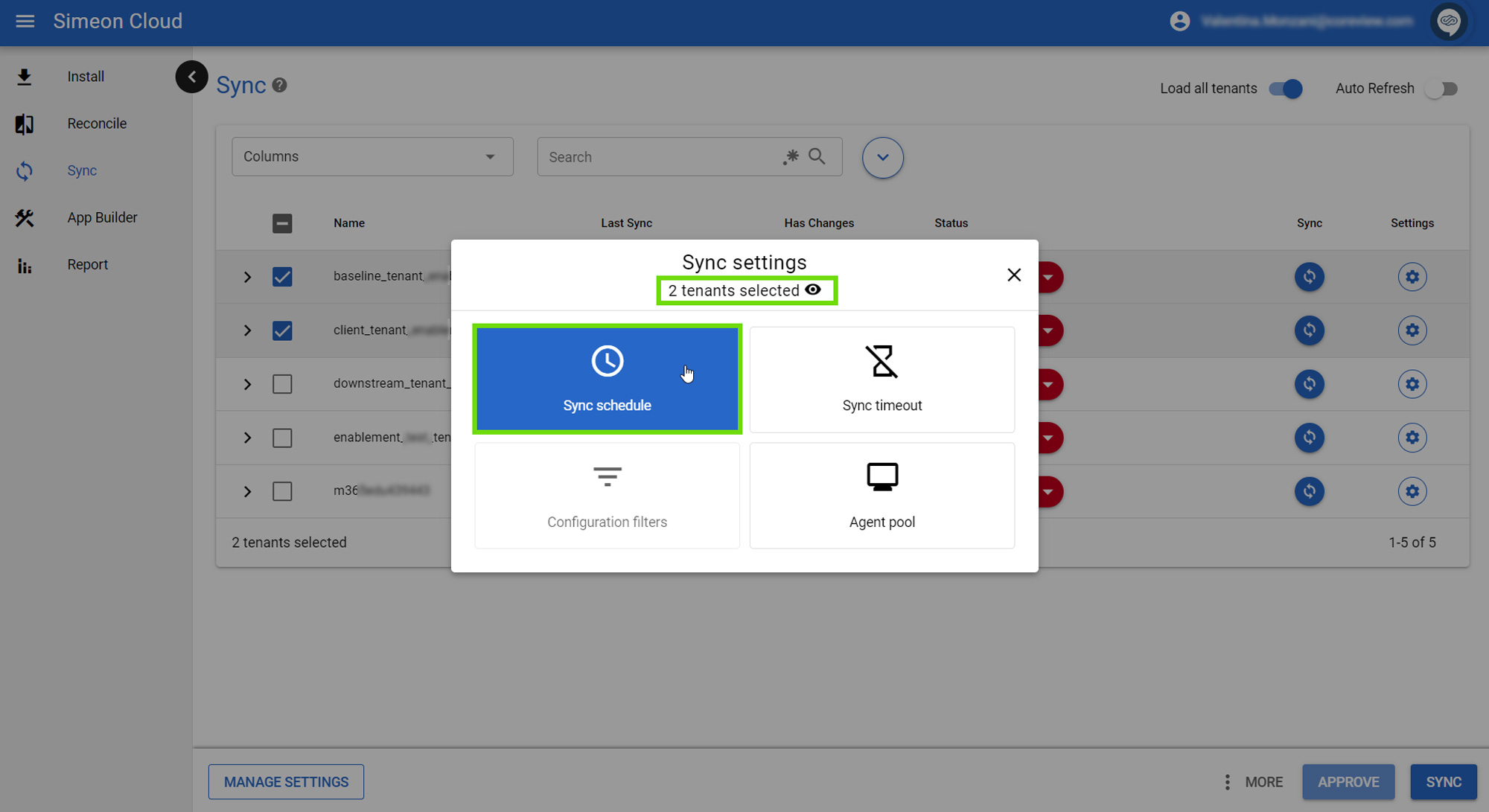
Now, configure the desired scheduling settings:
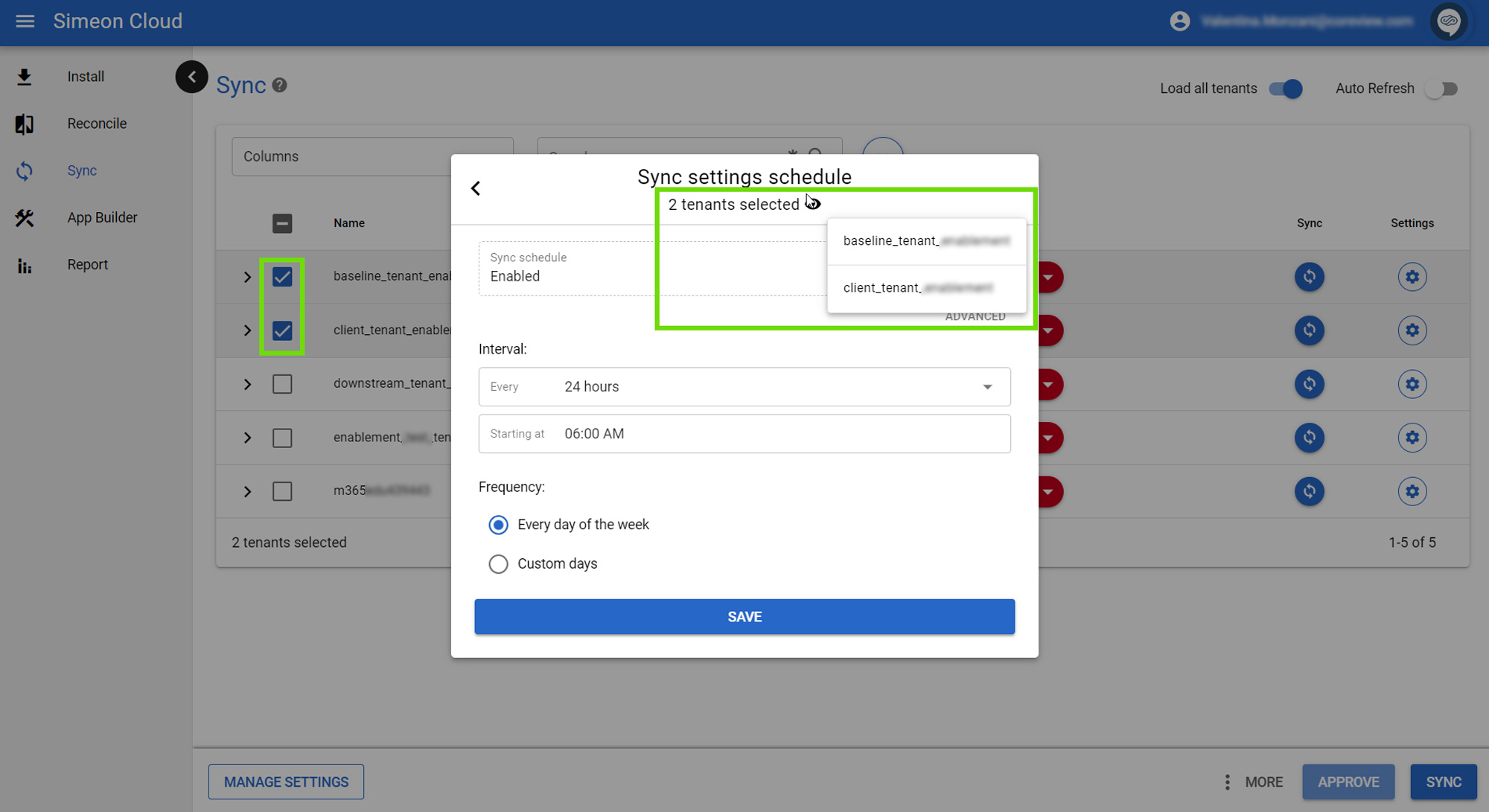
You can enable/disable the scheduled Sync with the toggle.
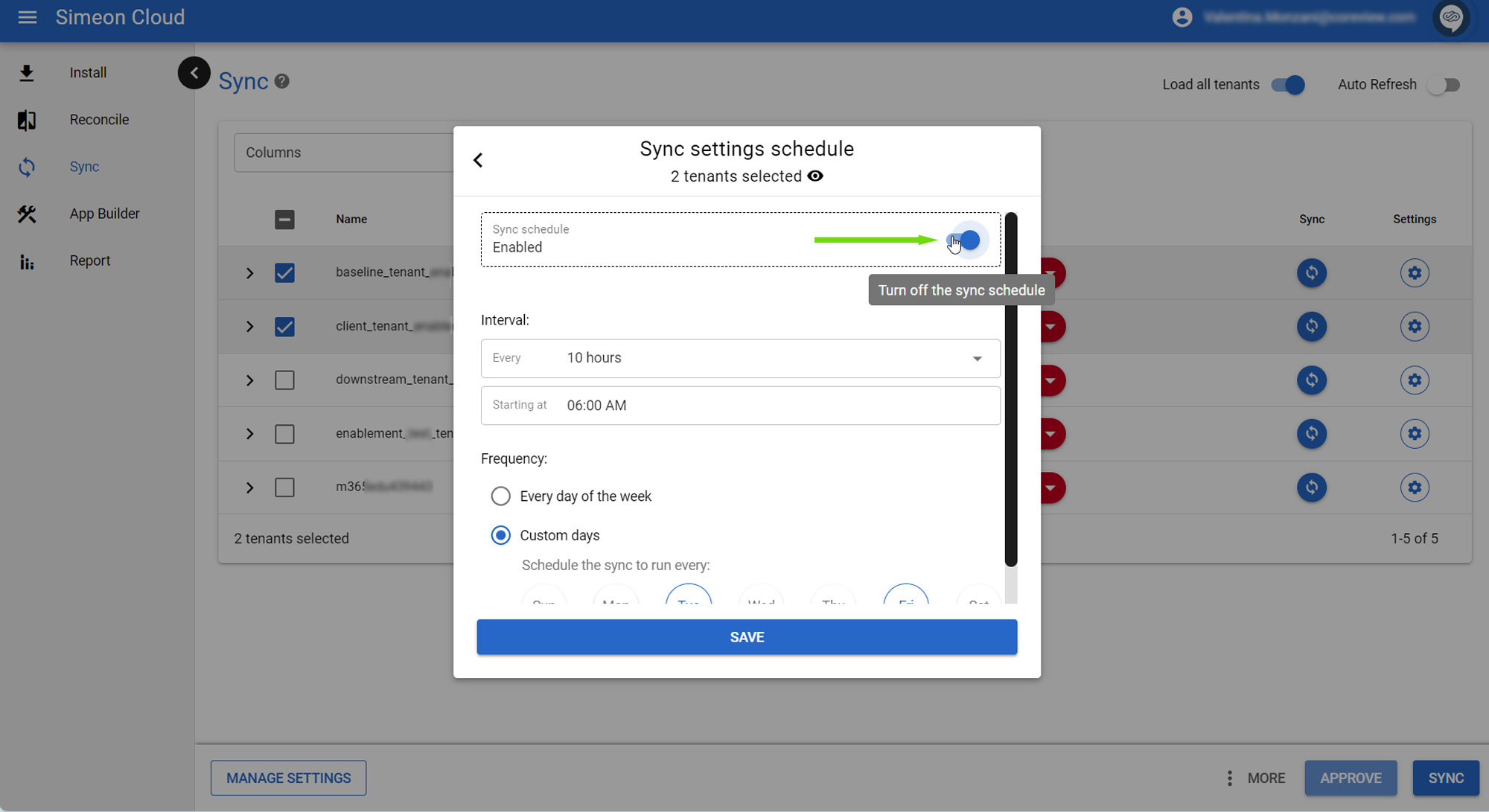
After enabling, you can set when you want the sync to run using the form.
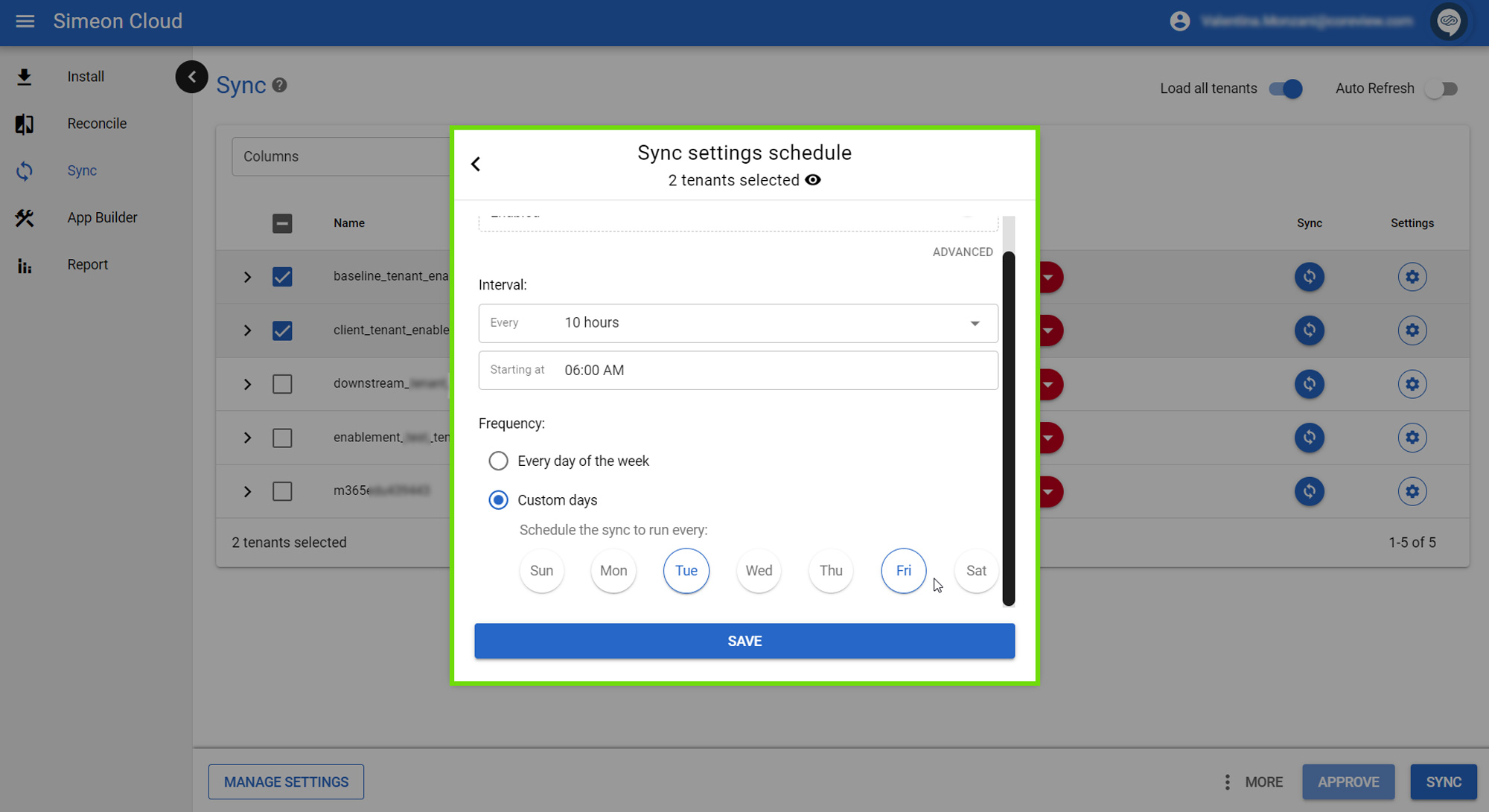
When done, click “Save”.
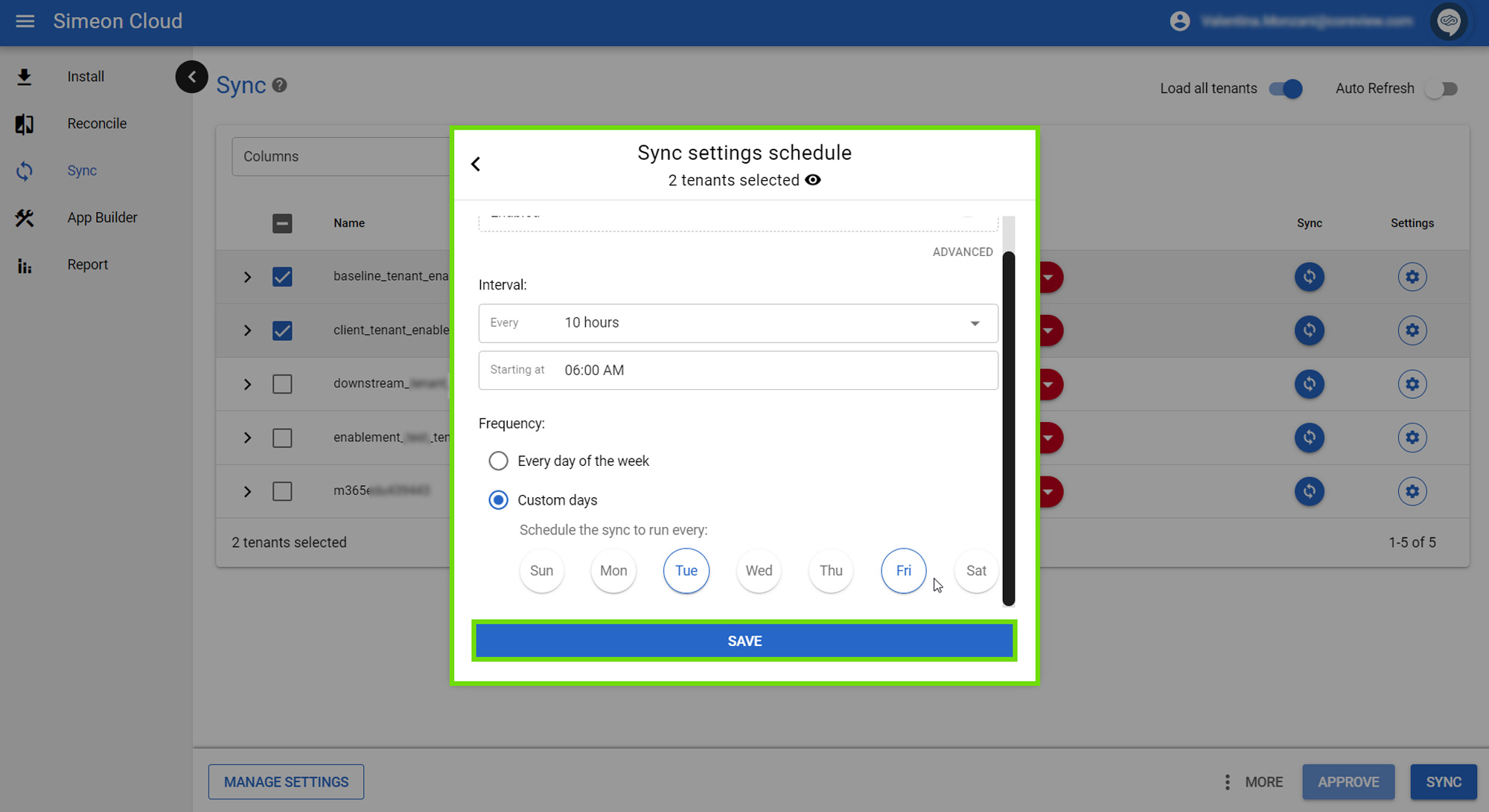
Differences in Sync frequencies for self-hosted vs SaaS Configuration Manager
When it comes to how often the Sync process can run, there’s a difference between the self-hosted (on-premises) version and the SaaS version.
Self-hosted Configuration Manager
In the self‑hosted version, the “Advanced” button allows you to enter and manage a cron expression. This allows you to run the Sync process at high frequencies, for example every 5 or 15 minutes.

SaaS Configuration Manager
In the SaaS version, the “Advanced” button is not available and the shortest available Sync interval is one hour.

